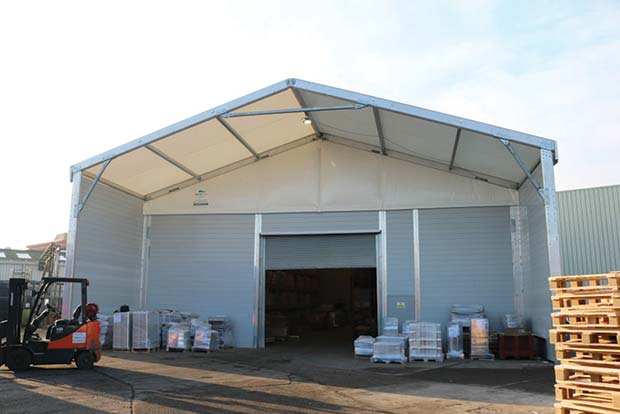Modular buildings today come in a variety of designs and offer great flexibility which can meet the budget and needs of any industry. For example, when looking to add to existing structures, replacing buildings or simply extending them, modular construction can meet all the criteria set by the client. The best part is that they do not look any different from traditionally constructed buildings.

Most importantly, modular construction can meet the needs of any sector or industry. For example, the education sector requires extensions or new buildings to be completed on a strict schedule. Many schools simply cannot afford cost or time overruns which can disrupt their regular programmes. In other words, construction work has to be usually undertaken during school closure and it is critical to complete the work before a new term starts. Modular building construction offers accelerated delivery and significantly minimises costs.
Modular units are also completed off-site in controlled environments/factories which mean that the project can be undertaken during school terms with minimum disruption. Furthermore, these modular buildings can be specially designed and constructed as per regular building standards and have the required functionality to meet teaching and learning needs.
Here are a few industries which can benefit from modular buildings.
Industrial
Due to the associated land costs and increased pollution, industrial sites are usually planned outside of major cities. This means that traditional construction methods can become very costly. For example, vehicles have to travel longer distances which can delay the delivery of construction materials or other resources. However, modular buildings are constructed within controlled environments and factories which are near the suppliers. Hence, on-site operations include site preparation and installation only as the modules are transported to the site almost complete.
This also saves considerable time and costs for industries, especially when they require critical extensions, as modular construction causes a minimum of disruption to the site. Semi-permanent units also offer increased flexibility, thereby allowing industrial facilities to be adaptable and competitive.
Oil and Gas Industry
Customised and pre-equipped modular units are particularly suited to the needs of the oil and gas industry, as they include essential service, power and control systems for all types of plants. Furthermore, the oil and gas industry has specific criteria and strict guidelines for plants in order to maximise safety and efficiency as many incidents can arise. Modular building solutions can offer complete construction services with customisable designs and installations.
For example, the oil and gas industry requires sturdy, fire and blast resistant buildings and controlled environments. This is a highly regulated industry and buildings/plants can be potentially hazardous locations. However, customisable modular building solutions can deliver state-of-the-art buildings/plants according to specific codes and regulations. In addition, these buildings offer safety, cost, time and quality benefits.
Education
Buildings within the education industry have to be optimised to provide an ideal learning environment for students. Hence, modular construction offers customised building designs which can meet specific needs of the educational institute as well as standard codes. For example, schools are especially vulnerable to fire and it is estimated that each year in the UK, around 1 to 20 schools can experience a fire. Hence, modular buildings can be specially designed to be fire-resistant. Even traditional structures can be extended through modular units, such as when the institute experiences increased student enrolments.
Retail
The retail industry is extremely competitive and businesses have to ensure that new buildings, projects or extensions do not interfere with existing operations which can lead to reduced profit margins. Furthermore, retail shops have to be built according to specific industry standards and building regulations. Modular buildings can be customised according to specific needs – for example, they can contain the required number of emergency routes and fire exits as required by the government.
Additionally, shops have to be built in a way that the business can change according to the market trends. Modular units are highly flexible and can be re-purposed and adapted to changing needs and requirements. Furthermore, it is easier to create designs which truly reflect the brand’s identity with customised modular structures.
Health Services
The unique requirements of healthcare facilities combined with the problem of overcrowding makes modular units an ideal choice for hospitals and clinics. From new hospital buildings to building extensions with a minimum of disruption and disturbance, modular units can cater to the specialised requirements of healthcare services, such as the need for fire-doors, emergency exits, specialised fixtures, fittings, floor plans and other installations, etc.
Modular construction builders also offer a number of options for layout and designs along with expert advice on local building and safety regulations. Accelerated construction, increased quality control, fast installation and a minimum of on-site preparation means that modular construction causes minimum disruption through efficient systems and processes.




Comments are closed.